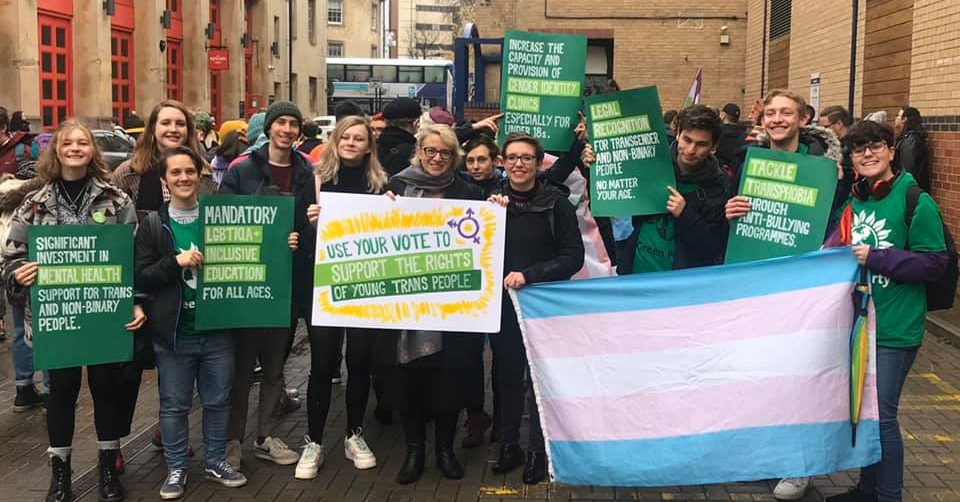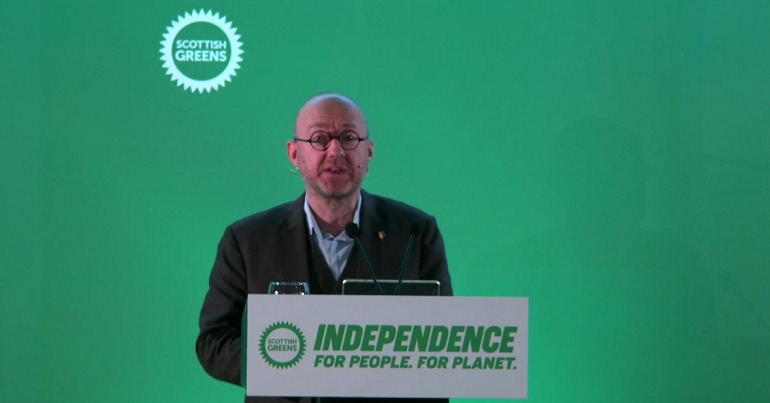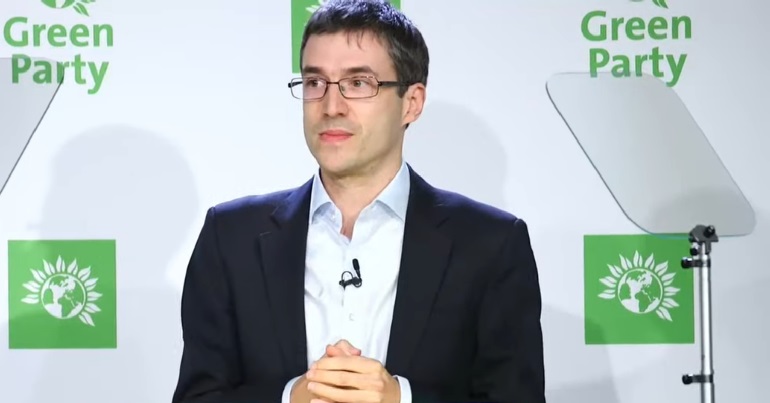Why socialists should join the Green Party #3: Greens won’t throw people under the bus in the culture wars

Where should socialists put their energy in 2023? This is a question facing many on the left.
There are some obvious answers. The wave of industrial militancy that has swept across the country has necessitated a solidarity movement alongside it. Campaign groups like Enough is Enough have provided a space for people to begin organising for the economic transformations the country needs. With the climate crisis getting ever more urgent and a socialist solution to it ever more necessary – leftists have an important role to play within the climate movement.
These are all vital movements for the left to be organising within. But most socialists accept that while the collective struggle of social movements and of organised labour are crucial to building a new society, these movements also need a political expression. They need a political organisation able to fight elections, assume political office and – ultimately – wield state power. Since Keir Starmer’s ascension to the top of his party, it is abundantly clear that political expression will not and cannot come from Labour.
Instead, it must come from elsewhere. For a growing number of people – including more than a dozen left wing ex-Labour Councillors, Jeremy Corbyn’s former spokesperson, and outriders and influencers of the Corbyn era – that political expression of the tsunami of rebellion sweeping across the country, the political expression of socialism, will come through the Green Party.
In light of that, our editor Chris Jarvis is writing a weekly column setting out why disaffected socialists should join the Green Party.
Greens won’t throw people under the bus in the culture wars
There is little the right wing press and the Tories love more than a culture war. It is their default setting when the economy is in crisis or the polls are looking bleak for the government. Ramping up rhetoric on migration. Demonising LGBT+ people. Attacking racial justice campaigners. All of this is part of a strategy to divide the electorate and distract from their failures.
In a misguided attempt to neutralise Tory attacks and not alienate right-leaning voters, the Labour Party’s reflex is to triangulate on these issues, or else double down on reactionary positions.
On migration, Labour have criticised the Tories for not deporting enough people, and are committed to a ‘points based’ migration system. Keir Starmer and other frontbenchers have even called for asylum seekers to be GPS tagged – a practice described by charities and lawyers as ‘psychological torture’.
On trans rights, Keir Starmer has led his party to a position of ambiguity at best and hostility at worst, with frontbenchers floating intermittently between support for trans people and dealing in dog whistles. It shouldn’t be forgotten that Labour MPs were whipped to abstain on the Tory move to block gender recognition reform in Scotland.
This isn’t new. Under Ed Miliband’s leadership, Labour literally carved the words “controls on immigration” into the infamous Ed Stone, and produced mugs with those same words printed on them. Gordon Brown promised to provide ‘British jobs for British workers’, a turn of phrase notable for having been a long-running slogan of the BNP. Tony Blair’s government went to war on benefit receipts, making them the bogeyman de jour.
While other parties have sought to ramp up anti-migrant sentiment and tighten up borders, the Greens have consistently made the case for a more humane migration policy and to ensure that the country has an asylum system based on the needs of refugees. When Labour printed the aforementioned ‘controls on immigration’ mugs at the height of the UKIP surge, the Greens responded by printing their own mugs with ‘standing up for migrants’ emblazoned across them. In the 2019 general election, the party’s then co-leader went so far as to explicitly say that the Greens didn’t want the votes of people that were hostile to migration.
The Greens’ collectively agreed policies on LGBTIQA+ rights are clear and they are the most progressive and forward thinking of the mainstream parties. The Green Party recognises that trans men are men, trans women are women and non-binary people are non-binary. The party’s policy also supports reform of the Gender Recognition Act to end the medicalisation of the process for obtaining a gender recognition certificate, instead allowing trans people to gain one on the basis of self-identification.
Green public figures and elected representatives are at the fore of pushing for policies like these. The party’s leadership team are overwhelmingly in favour of trans rights, and anti-trans figures are increasingly marginal and fringe. In Councils across the country – from Newham to Norwich to Oxford, Green Councillors have passed motions designed to make their Councils more trans-inclusive.
The Green Party has its own problems in these areas. The challenges of tackling transphobia in the party’s ranks are well documented. The Green Party remains overwhelmingly white. But fundamentally, the Greens have shown time and time again that they won’t succumb to triangulation or give in to the reactionary pull of the right.
So with the media and the politicians are whipping up a moral panic about trans people and a hate campaign against migrants, we desperately need political parties and representatives to stand in solidarity with these people in the face of demonisation and oppression, and to make the case in public debate for a humane, liberatory approach. Right now, the only party making that case is the Green Party.
PS. We hope you enjoyed this article. Bright Green has got big plans for the future to publish many more articles like this. You can help make that happen. Please donate to Bright Green now donate to Bright Green now.



Chris, could you please consider doing a spotlight on all of our Green Spokespeople. Or/and, in one of your Sunday programmes, focus on Spokespeople and their policy roles.
Thanks
Debs